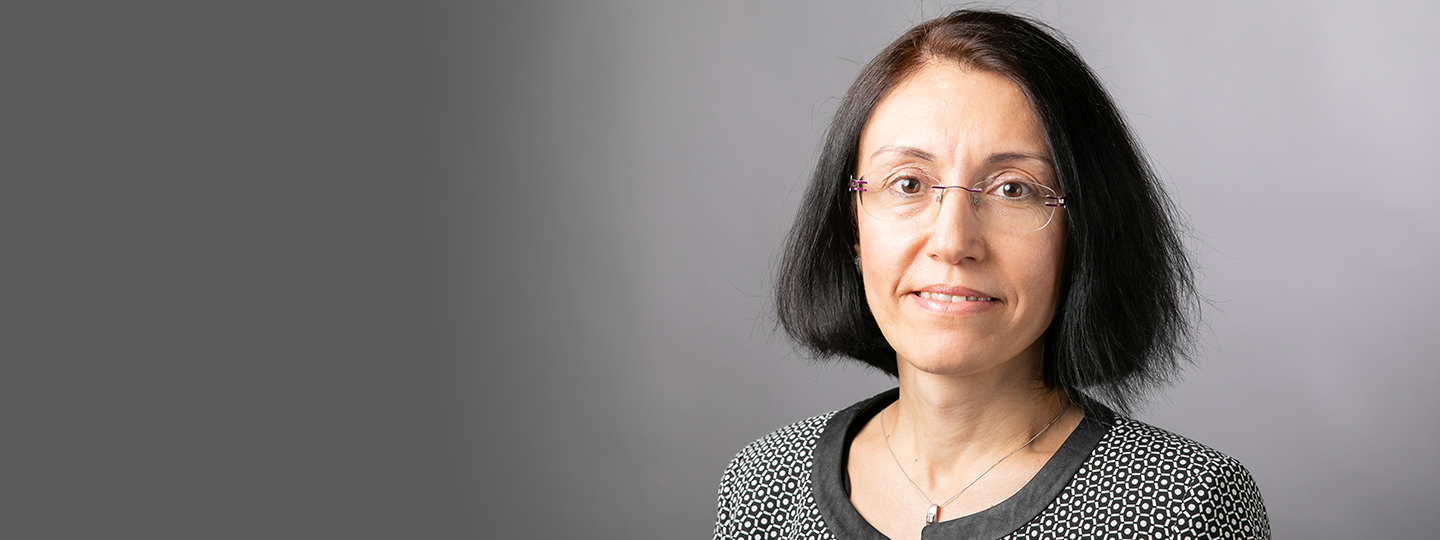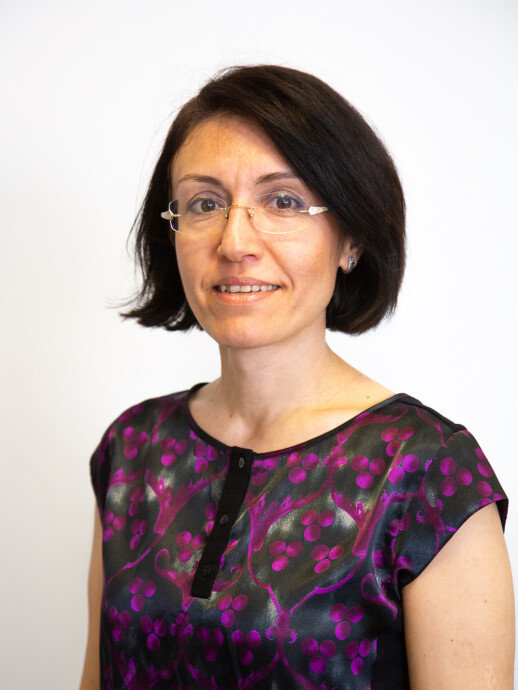Teacher education programs are an important part of student teachers’ “learning to teach”, but may adversely have limited impact on their learning due to multiple interacting factors.
Professor Çiğdem Haser explains how student teachers’ beliefs about mathematics and teaching and learning mathematics affect their learning to teach, especially in teacher education programs, and how certain program experiences may be the key to develop beliefs that will help them teach mathematics more effectively in their careers.
Haser will hold her Inaugural lecture on April 26. under the title "The role of beliefs in learning to teach mathematics".
Inaugural Lectures in text version
Several factors affect how teachers learn to teach in teacher education programs and how they continue to learn during their careers. These factors start affecting teachers’ learning long before they study in the programs and continue to affect them when they become teachers. Some of these factors are more observable or recognizable, such as the curriculum, students’ existing knowledge, and teachers’ knowledge of the content. Others are less observable, such as teachers’ and students’ anxiety. Among the unobservable factors, teachers’ beliefs are often considered the most important.
Beliefs do not have a common definition, but they can be considered mental constructs shaped by experiences that affect how we see the world. Teachers’ beliefs about content, how it should be taught, and how students should learn it affect their practices by guiding them when they conceptualize the content to teach, such as mathematical knowledge, identify the important knowledge and skills to be learned about a mathematics topic, plan the teaching approaches and tasks for students, and assess students’ learning. These practices eventually affect students' beliefs about mathematics and their mathematics learning.
How do teachers develop such beliefs? When students come to teacher education programs, they have already completed years of education, observed several teachers in the classrooms, and developed certain ideas about the nature of the content they learned, such as mathematics, and the effective ways to teach and learn it. These observations and experiences take place repeatedly over the years in social contexts, such as mathematics classrooms, and are therefore, also affected by other people. Ultimately, they develop into beliefs that students wear as a pair of mental glasses when they start to study in teacher education programs. These glasses, or in other words their beliefs, filter what student teachers experience in the programs and affect their learning to teach often by limiting it.
The wave of reforms in education systems around the world towards the end of the 20th century led to changes in the roles of the students and the teachers in the classrooms and in the approaches by which content is addressed. Several countries revised their curricula to reflect these changes, and teachers were encouraged to provide guidance to the students, and students were gently introduced to more responsibilities and active roles in their own learning. This change was reflected in teacher education programs’ goals, where the development and practice of guidance roles were emphasized. Programs provide experiences for student teachers in line with these goals and introduce teaching and learning ideas that they have generally never thought of or seen before as students. However, these experiences do not always result in teachers’ beliefs and practices that are in line with the program goals.
How do beliefs affect student teachers’ learning, often in contrast with the teacher education program goals? How may teacher education programs be more effective in developing beliefs that will lead to effective teaching and learning? My research tries to answer these two broad questions in the field of mathematics education. In general, I refer to beliefs about the nature of mathematics, teaching mathematics, and learning mathematics as mathematics-related beliefs, and my research focuses on exploring student teachers’ mathematics-related beliefs in teacher education programs and in the first years of their careers.
When student teachers come to teacher education programs, many of them believe that mathematical knowledge is static and based on mostly unrelated rules that seem to have no underlying reasoning. They should be taught first, by clearly stating them, and then, by extensively practicing them in the classroom. Student teachers believe that students should be assigned tasks that can be solved by utilizing the rules, and students should practice these tasks as much as they can. These beliefs are generally referred to as traditional beliefs. Teacher education programs, on the other hand, aim for developing constructivist beliefs, which consider mathematics as a dynamic field where knowledge is always constructed, teaching mathematics as helping students build knowledge, and learning mathematics as connecting the mathematical ideas to construct knowledge. Student teachers’ traditional beliefs change to some extent during their training in the teacher education programs, but their beliefs also filter their learning and experiences in the programs.
One of the most important program experiences that constructivist mathematics-related beliefs can be developed is the methods of teaching mathematics courses. These courses aim to help student teachers design learning experiences for students that will lead to effective learning of mathematics in line with constructivist ideas.
In one study, we followed a cohort of student teachers in a four-year middle school mathematics teacher education program from the beginning of the second year until the end of the fourth year. We found that the most dramatic changes in mathematics-related beliefs took place during the year that methods of teaching mathematics courses were offered. However, when we surveyed student teachers at ten middle school mathematics teacher education programs, we found that student teachers had both constructivist and traditional mathematics-related beliefs when they completed methods courses. They believed that mathematical knowledge requires reasoning and in-depth thinking about conceptual connections that students can build with the guidance of the teacher. But they also believe that there are some mathematical rules and facts that should be memorized, and these should be transmitted to the students by the teachers. These findings address the fact that teacher education programs have limited impact on student teachers because their beliefs filter their learning. Is it possible to have conflicting beliefs? Yes, it is. We hold our internally consistent beliefs in isolated sets, and we are not aware if these sets of beliefs contradict each other unless we have recurring experiences that reveal the contradiction and encourage us to reflect.
How about teaching practice courses? Could teaching practice be an eye-opening experience for student teachers who hold contrasting beliefs? Unfortunately, rarely. Student teachers teach in classrooms where they are not the actual teachers, and they generally cannot get to know the students and the classroom climate. Therefore, instead of trying more innovative but risky approaches, they tend to teach mathematics as they were taught. They believe that what worked for them when they were learning mathematics may work for the students they teach. Hence, they tend to put aside their learning in teacher education programs. Eventually, they start to believe that what they learned can only work in ideal classrooms, not in regular classrooms. Therefore, their beliefs may limit their learning during teaching practice courses, and the course experiences may discourage them from practicing in line with their recently developed constructivist beliefs.
What happens when student teachers become mathematics teachers? We have extensively observed two novice mathematics teachers who graduated from the same mathematics teacher education program and were working in significantly different school contexts in Türkiye. One teacher was working in a disadvantaged school with limited resources and an unsupportive school environment. Yet she utilized meaningful mathematical tasks in her classrooms and guided students towards learning mathematics by using several tools. The other teacher was working at a private school with several resources and facilities and a supportive school community. However, he designed traditional mathematics lessons where he briefly explained the concepts and then focused on solving different types of questions by presenting solution strategies one by one. Interviews revealed that when these two teachers came to the teacher education program, they had different mathematics-related beliefs. While one was able to strengthen her existing constructivist beliefs with the program experiences, the other adhered to his traditional beliefs and resisted changing them, which confirmed that their beliefs affected their learning to teach process.
We may expect to see more student teachers in teacher education programs who were taught mathematics in line with constructivist mathematics-related beliefs. However, teacher education programs revise their goals to address the needs of the future. Within today’s rapidly changing world and society, there is a constant need to monitor student teachers’ entering beliefs, design experiences that will support them in their learning in the programs, and help them develop mathematics-related beliefs that will enable them to adapt to the demands of their future teaching career by prioritizing students’ learning. The differences between student teachers’ entering and graduating beliefs in the teacher education programs are important indicators of the effectiveness of the programs. Investigating student teachers’ beliefs systematically and providing them with opportunities based on research have the potential to increase this effectiveness.
Most central research topics or areas of expertise
- Mathematics education
- Mathematics related beliefs in teacher education
- Research training of teachers
- Training of researchers in the field of mathematics education
Degrees and docentships
- Docent of Elementary Mathematics Education, Council of Higher Education, Türkiye 2014
- Ph.D. in Curriculum, Teaching and Educational Policy, Michigan State University, 2006

